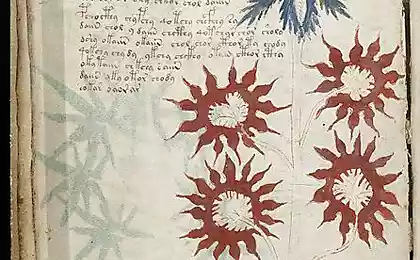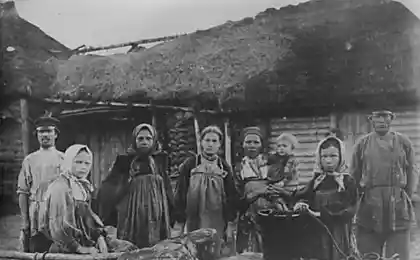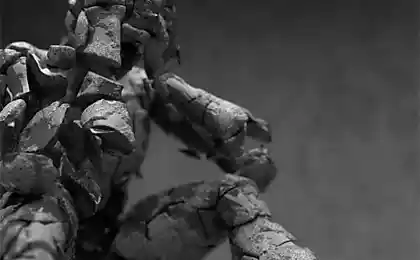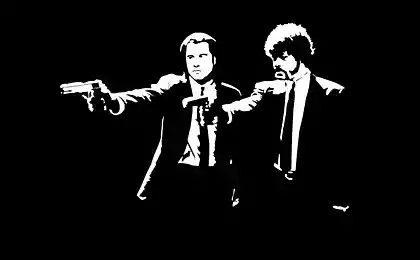458
7 assumptions about the origin of the word «OK»
Since the expression O.K. widely used everywhere today, there are different opinions about its origin.
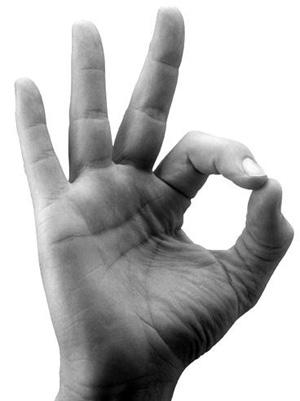
1. The most common assumption is that OK It comes from the birthplace of US President Martin Van Buren - Kinderhook, New York. Van Buren has chosen a nickname Old Kinderhook, which led to the advertising slogan «Old Kinderhook is OK" his campaign in 1840, distributed by the Democratic Party, whose members were young and active Americans.
2. The second assumption is that the expression OK It appeared to refer to abbreviations expression «oll korrect», which appeared as a joke (a misspelling of the English «all correct», which means "all right") in a Boston newspaper in 1839. Another hypothesis is such that the US President Andrew Jackson used this expression when making administrative decisions. He wrote, «all correct» German style «oll korrekt», or, in abbreviated form, «OK».
3. Also common version of German origin. Proofreaders, who sent the article ahead of print in the newspapers, in the absence of edits on article put a mark «OK», «ohne Korrektur», ie "without proof».
There are also less common, so-called "folk" version of the origin OK
4. For example, the French believe that this expression arose during the war, when the daily report on the losses to write "0 killed» («zero killed"), which, for brevity, began to say «OK» («Oh Kay"). And later this expression has become widely used by British pilots during World War II, when they reported on the basis that they do not have losses and there are no problems with the aircraft.
5. Another theory that «OK" comes from modern Greek «OLA KALA», an expression used by Greek sailors and handlers of the rails in the United States, noted that the two letters on the rails, indicating "all right, everything is going well," etc. . n.
6. Residents of Oklahoma argue that «OK» comes from the abbreviated spelling of their home state, received during a campaign.
7. There is also a version of that occurrence is associated with the advent of containerized shipping. The duties of a longshoreman included labeling of containers "everything intact» (All Keep), mistakenly reduced to OK.

1. The most common assumption is that OK It comes from the birthplace of US President Martin Van Buren - Kinderhook, New York. Van Buren has chosen a nickname Old Kinderhook, which led to the advertising slogan «Old Kinderhook is OK" his campaign in 1840, distributed by the Democratic Party, whose members were young and active Americans.
2. The second assumption is that the expression OK It appeared to refer to abbreviations expression «oll korrect», which appeared as a joke (a misspelling of the English «all correct», which means "all right") in a Boston newspaper in 1839. Another hypothesis is such that the US President Andrew Jackson used this expression when making administrative decisions. He wrote, «all correct» German style «oll korrekt», or, in abbreviated form, «OK».
3. Also common version of German origin. Proofreaders, who sent the article ahead of print in the newspapers, in the absence of edits on article put a mark «OK», «ohne Korrektur», ie "without proof».
There are also less common, so-called "folk" version of the origin OK
4. For example, the French believe that this expression arose during the war, when the daily report on the losses to write "0 killed» («zero killed"), which, for brevity, began to say «OK» («Oh Kay"). And later this expression has become widely used by British pilots during World War II, when they reported on the basis that they do not have losses and there are no problems with the aircraft.
5. Another theory that «OK" comes from modern Greek «OLA KALA», an expression used by Greek sailors and handlers of the rails in the United States, noted that the two letters on the rails, indicating "all right, everything is going well," etc. . n.
6. Residents of Oklahoma argue that «OK» comes from the abbreviated spelling of their home state, received during a campaign.
7. There is also a version of that occurrence is associated with the advent of containerized shipping. The duties of a longshoreman included labeling of containers "everything intact» (All Keep), mistakenly reduced to OK.


